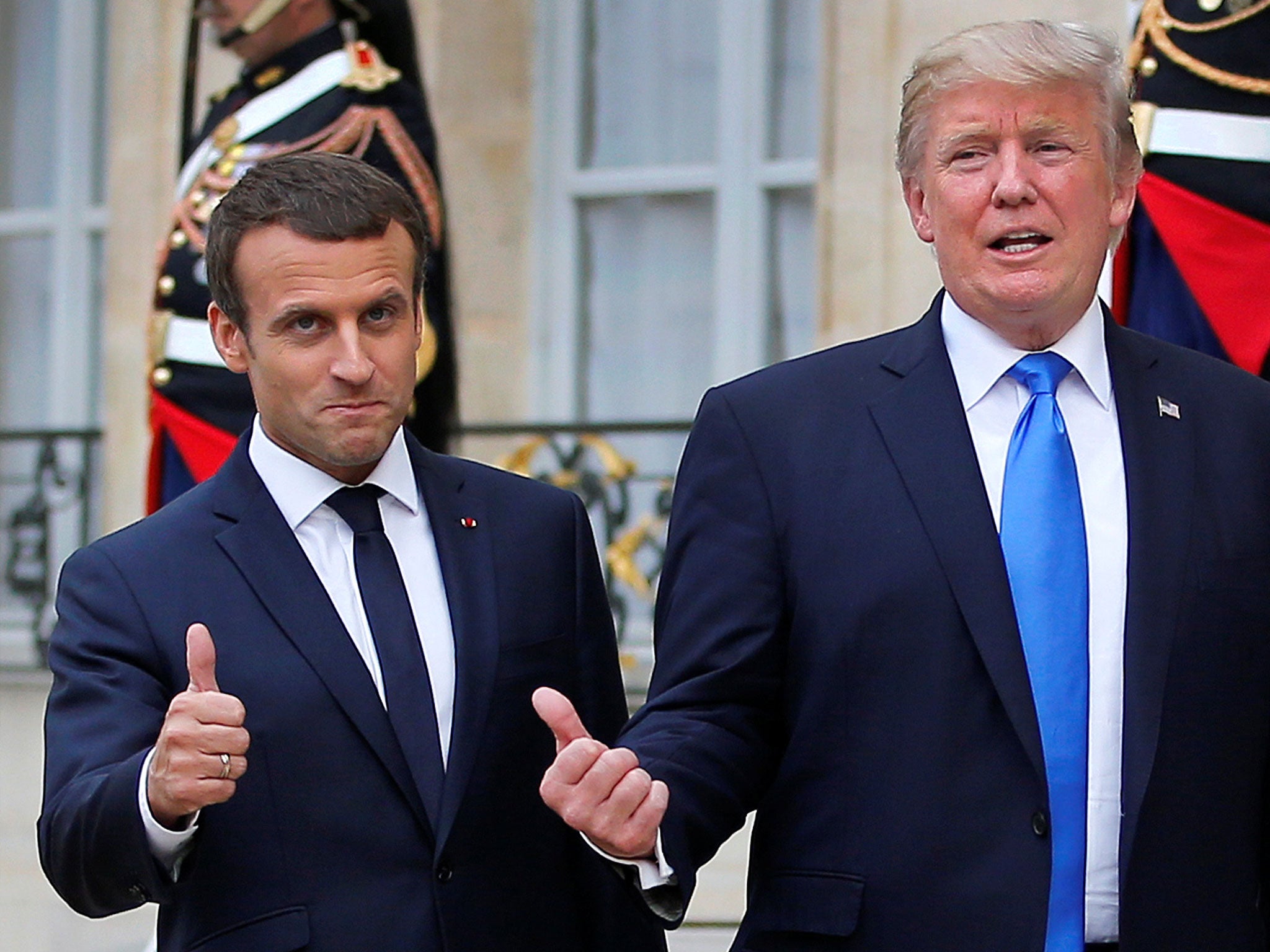Emmanuel Macron thinks he has convinced Trump to rejoin Paris Agreement on climate change
The US president understands 'the link that exists between global warming and terrorism', according to his French counterpart

Emmanuel Macron, the French president, thinks he may have convinced his American counterpart, Donald Trump, not to withdraw the US from the Paris Agreement on climate change.
The Republican billionaire had repeatedly pledged to withdraw from the international accord during his election campaign but his administration was split over the issue with an announcement about what he would do repeatedly delayed.
When Mr Trump revealed his decision to withdraw, he suggested the US might stay if he was able to “negotiate a far better deal”.
Sir Richard Branson said recently that he had “a feeling that the president is regretting what he did”, adding that his influential children could be changing his mind.
And Mr Macron said the US leader seemed open to reconsidering when they spoke during Mr Trump’s state visit to France last week.
"He understood the sense of my approach, notably the link that exists between global warming and terrorism. He told me he would try to find a solution in the coming months," Mr Macron said, according to le Journal du Dimanche.
The Times also reported that Mr Macron had said: "We talked in detail about what could enable him to come back into the Paris accords."
After Mr Trump's suggestion he would renegotiate the agreement, France, Germany and Italy issued a joint statement dismissing the idea that it would be changed. The UK was notably absent from the signatories although Theresa May later also ruled out any alterations.
A recent scientific paper in the journal Nature warned time was running out to prevent ‘dangerous’ climate change, which is expected to begin somewhere between 1.5 and two degrees Celsius.
It said that the world could emit enough carbon to bust the Paris Agreement target of keeping global warming as close to 1.5C as possible in anything from four to 26 years. Global emissions, the researchers said, would have to start falling rapidly from 2020 at the latest.
Join our commenting forum
Join thought-provoking conversations, follow other Independent readers and see their replies
Comments
Bookmark popover
Removed from bookmarks